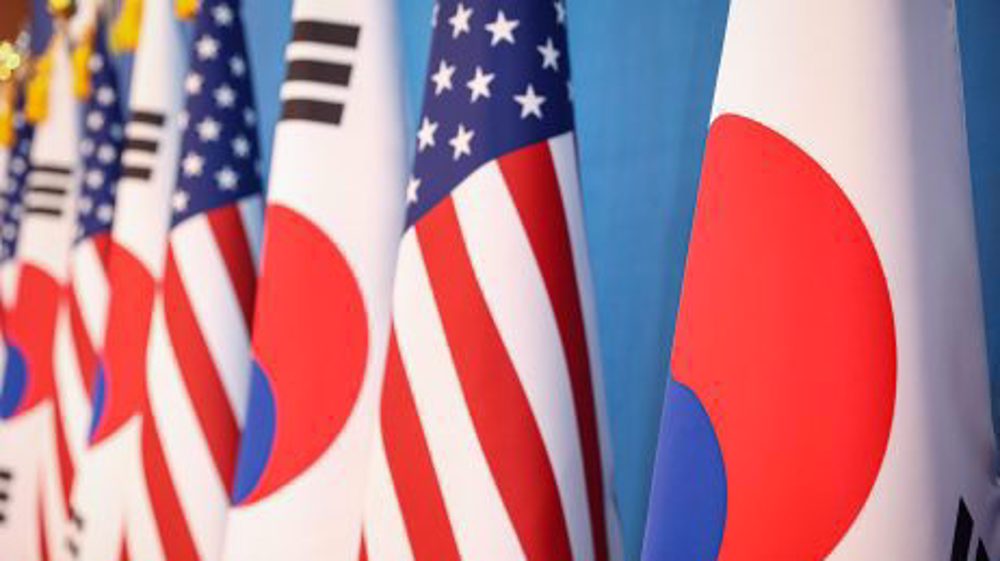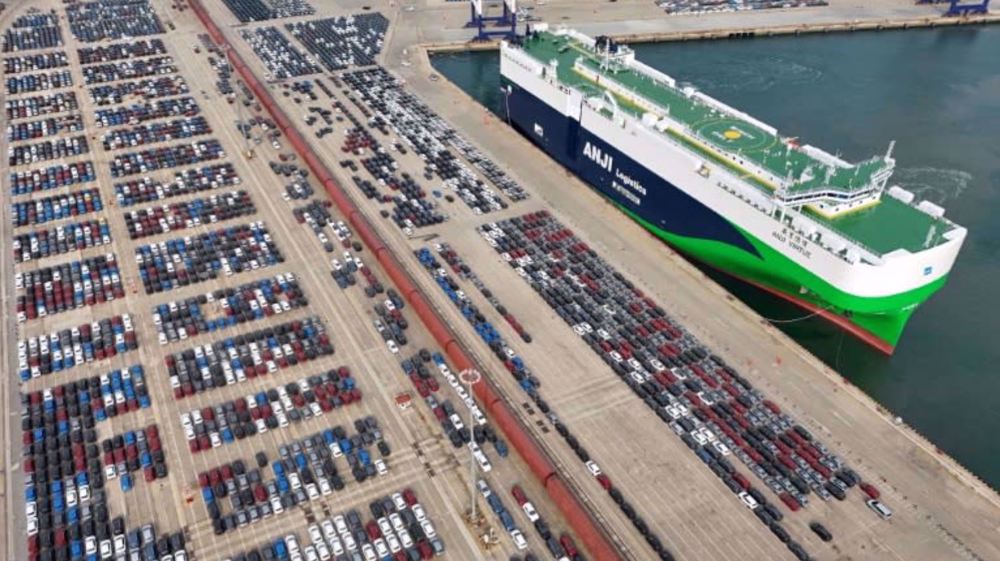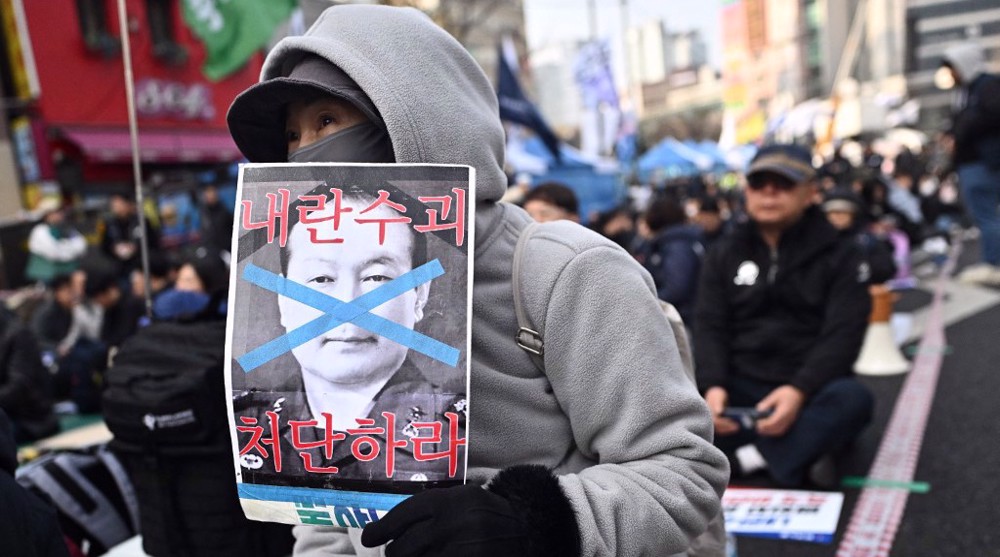S Korea defiant in face of new sanctions, vows to pursue nuclear deterrence
South Korea has confirmed that the traces of radioactive xenon gas it recently detected were from a North Korean nuclear test earlier in the month.
The South Korean Nuclear Safety and Security Commission (NSCC) explained on Wednesday that its land-based detector in the country’s northeast had discovered traces of xenon-133 isotope on nine occasions, while its mobile device near the country’s east coast had detected traces of the isotope four times.
“It was difficult to find out how powerful the nuclear test was with the amount of xenon detected, but we can say the xenon was from North Korea,” said executive commissioner Choi Jongbae in a press conference in the capital, Seoul.
He said, however, that the commission was unable to confirm what kind of nuclear test the North had conducted.
North Korea said on September 3 that it had conducted a successful hydrogen bomb test and that the bomb was small enough to fit on a missile.
The NSCC said the xenon detected had no impact on South Korea’s environment and population.
Xenon is a naturally occurring, colorless gas used in manufacturing some lights. But the detected xenon-133 is a radioactive isotope that does not emerge naturally and has been linked to nuclear tests by Pyongyang in the past.
The North Korean test, which was the country’s sixth, prompted the United Nations Security Council (UNSC) to escalate sanctions against Pyongyang by imposing new bans on the country’s textile exports and a limit on its fuel supplies.

South Korea fires ‘Taurus’
Meanwhile, Seoul announced on Wednesday that it had conducted its first live-fire drill for an advanced air-launched cruise missile in a bid to strengthen the country’s pre-emptive strike capability against North Korea.
The Taurus missile launched from an F-15 jetfighter traveled through obstacles at low altitudes before striking a target off the South's western coast, the Defense Ministry said.
The missile, manufactured by Germany's Taurus Systems, is reported to have a maximum range of 500 kilometers and its stealth characteristics allow it to avoid radar detection.
Pyongyang remains defiant
Meanwhile, in a statement seen by Press TV, the North Korean Embassy in Tehran strongly condemned the latest UN Security Council sanctions resolutions against Pyongyang.
“Resolution 2371 and 2375 against the DPRK (North Korea), which the US fabricated by employing all sorts of despicable and violence means and methods, are aimed at depriving the DPRK of its legal right for self-defense and completely suffocating its state and people through a full-scale economic blockade,” read part of the statement.
The statement added that North Korea’s nuclear program was “a fair and legitimate measure for self-defense to protect its sovereignty” from “the high-handed and arbitrary acts of the US, which has made it its business to pursue the policy of extreme hostility and pose a nuclear threat” to Pyongyang.
The statement hit out at the US for “driving the situation of the Korean Peninsula to the brink of a nuclear war and manipulating the UNSC” to adopt the sanctions resolutions, which revealed Washington’s “evil intention to obliterate” North Korea.
It added that the resolutions would, on the contrary, make North Korea more determined to go on with its nuclear program.
“The adoption of illegal and evil ‘resolutions on sanctions’ serves as the occasion for the DPRK to verify that the road it chose was absolutely right and to harden its resolve to follow this road at a faster pace without the slightest diversion until this fight to the finish is over,” it stressed.
The statement also stressed that the North’s “nuclear deterrence” power was not up for negotiations, warning that Pyongyang would “not hesitate to use any form of ultimate means” should the US persist in its “reckless attempts to stifle” the country.

The UN Security Council on Monday adopted a new sanctions resolution on North Korea.
The US-drafted resolution was passed unanimously, just a month after the UNSC decided to ban exports of coal, lead, and seafood in response to Pyongyang’s launch of an intercontinental ballistic missile (ICBM).
The North Korean ministry described the newer resolution as “heinous provocation aimed at depriving the DPRK of its legitimate right for self-defense and completely suffocating its state and people through full-scale economic blockade.”
Trump calls sanctions small step, vows much tougher moves
US President Donald Trump said on Tuesday that the new sanctions on the North were a small step.
“I don’t know if it has any impact, but certainly it was nice to get a 15-to-nothing vote, but those sanctions are nothing compared to what ultimately will have to happen,” Trump said in vague but threatening remarks.

Moreover, US Treasury Secretary Steven Mnuchin warned officials in China, which is Pyongyang’s key ally and trading partner, that if it did not follow through on the new sanctions, Washington would “put additional sanctions on them and prevent them from accessing the US and international dollar system.”
Asked if Trump was considering other moves, including cutting off Chinese banks from the US financial system, White House spokeswoman Sarah Sanders said, “All options are on the table. The president has also said that he wants every country involved to step up and do more.”
The US’s initial draft of the sanctions resolution had to be watered down to win the backing of China and Russia, which are both UNSC veto-wielding powers. It stopped short of imposing a full embargo on oil exports to North Korea, most of which come from China.
‘Magnitude of North Korea test much higher than formal estimates’
Meanwhile, a US monitoring group also said on Wednesday that North Korea’s latest nuclear test had had a yield of 250 kilotons, which is much higher than earlier, official estimates.
The authoritative US website 38 North, which is linked to the Johns Hopkins University, said that it was lifting its estimate for the yield of the blast to “roughly 250 kilotons.”
The figure is more than 16 times the size of the 15-kiloton US bomb that destroyed the Japanese city of Hiroshima in 1945.
Other official estimates of the yield vary from South Korea’s 50 kilotons to Japan’s 160.

US-South Korea trade tensions

China ‘firmly’ opposes countries making trade agreements with US at its expense

South Korea's court removes president over martial law controversy
Oil Minister Paknejad: Russia build nuclear plant in Iran with own funds
UAE deploys radar in Somalia to monitor Yemen’s anti-Israel strikes
Iran summons Dutch envoy over 'baseless' accusations against Tehran
VIDEO | Press TV's news headlines
India, Pakistan exchange fire as UN calls for 'maximum restraint'
Iran condemns Israeli attacks on Gaza tents as 'clear proof of war crime'
Syria’s HTS seeks normalization with Israel, Jolani writes to Trump
Iranian FM Araghchi heads to Muscat for indirect talks with US










 This makes it easy to access the Press TV website
This makes it easy to access the Press TV website